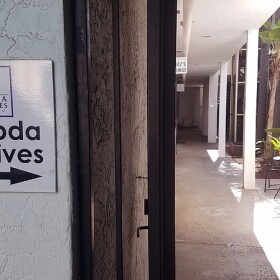Scripps Research Institute received a $129 million grant Wednesday from the National Institutes of Health to move forward with developing a vaccine for the human immunodeficiency virus, or HIV.
Scripps researchers are leading an international research effort and will be receiving around half of the grant money over the next several years.
HIV is difficult to deal with because there are just so many strains of the virus. That’s according to immunologist Dennis Burton, one of the lead researchers from Scripps.
In his lab, Burton works with other scientists around the world to create a vaccine that can induce different kinds of antibodies or proteins in the blood that fight a virus.
"We have this variability problem, so many strains of the virus. We need particular types of antibodies that will take out all these strains," Burton said. "Inducing that by vaccination proves to be difficult. So we have had to come out with some very new strategies."
Burton said other vaccinations have been narrow in the strains they can fight, or the vaccines simply have not worked well. So they are trying to create something more general.
"And that’s not really been developed to date. There have been other attempts to make HIV vaccines that have relied on different mechanisms mostly they’ve been unsuccessful or possibly marginally successful," Burton said.
The vaccine will be geared toward children, Burton said, so they can develop an immunity to the virus. The hope is to develop an actual vaccine that can be tested on humans.







